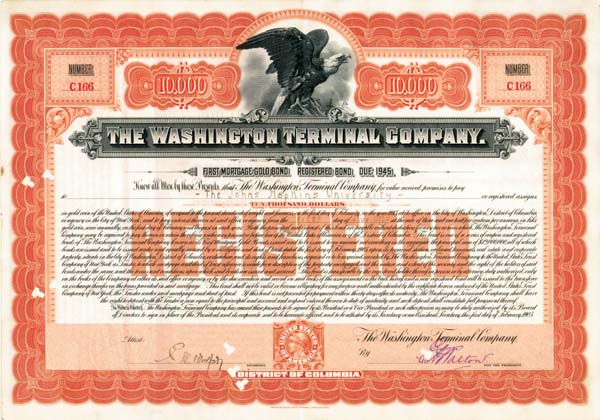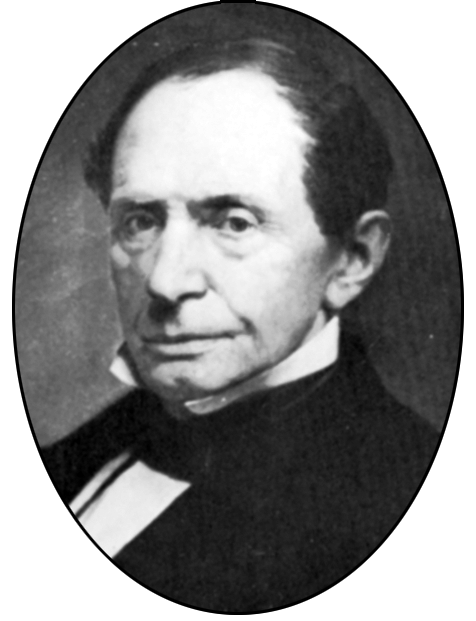Washington Terminal Co. issued to Johns Hopkins University - $10,000 Railway Bond
Inv# AG1362B Bond

The Washington Terminal Company (reporting mark WATC) is a corporation created in Washington, D.C., United States, to provide support to railroads using Washington's Union Station. It is now a nearly wholly owned subsidiary of Amtrak.
It was established in 1901 by the Baltimore and Ohio Railroad and the Pennsylvania Railroad-controlled Philadelphia, Baltimore and Washington Railroad.
The Washington Terminal Company owned and operated Union Station (opened in 1907) and about 5 miles (8.0 km) of track in the Washington area, providing switching services for passenger trains using the station or passing through the area:
- Baltimore and Ohio Railroad (B&O)
- Pennsylvania Railroad (PRR)
- Chesapeake and Ohio Railway (C&O)
- Richmond, Fredericksburg and Potomac Railroad (RF&P)
- Southern Railway (SOU)
- Atlantic Coast Line Railroad (ACL)
- Seaboard Air Line Railroad (SAL)
In 1981, Amtrak took over the terminal company's operations. It currently owns a 99.7% interest in WTC, with the balance held by Amtrak employees. All of WTC's officers are Amtrak employees, as are most of its directors. Through WTC, Amtrak presently shares ownership of Union Station with the United States Department of Transportation. While the DOT owns the station building itself and the surrounding parking lots, WTC owns the platforms and tracks.
Despite being nearly wholly owned by Amtrak, the Washington Terminal Company is legally a separate entity, and unlike Amtrak, it is not exempt from the Interstate Commerce Act. This allowed Virginia Railway Express to threaten a filing to the Surface Transportation Board to enforce its right to access when Amtrak tried to oust VRE from Union Station after VRE said they would not automatically re-hire Amtrak as its operating contractor. Faced with this action, Amtrak backed down.A bond is a document of title for a loan. Bonds are issued, not only by businesses, but also by national, state or city governments, or other public bodies, or sometimes by individuals. Bonds are a loan to the company or other body. They are normally repayable within a stated period of time. Bonds earn interest at a fixed rate, which must usually be paid by the undertaking regardless of its financial results. A bondholder is a creditor of the undertaking.










Ebay ID: labarre_galleries